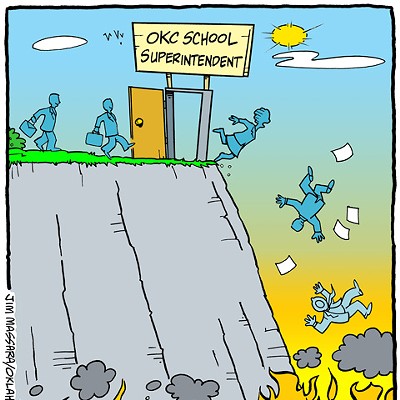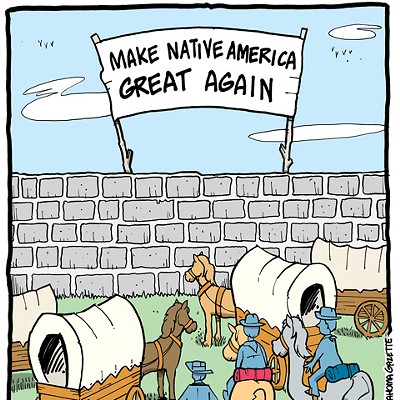We Gannett editors in the 1980s were required to rank employees from most valuable to least valuable. (If you want to make friends and influence workers, try that sometime.)
I know supervisors rate employees in their own minds, but forwarding the ranking to corporate seemed like a bosses-gone-wild episode. You knew what the brass would ask next: "What are you doing about Beth Cooper, the employee you ranked at the bottom?" If Beth graced the depths of your list a year later, corporate would ask: "Why is Beth Cooper still on staff?" It didn't matter that your 20 employees were solid, they still had to be placed in order of worth. (Fortunately, the brutal life of that management brainchild was short-lived.)
I thought of that exercise when I read about a recent survey by the Associated Press Managing Editors, a national trade organization. Surveyed APME editors said they had 10 percent fewer staff members than last year and the bulk of workers impacted by layoffs, buyouts and attrition were their youngest (ages 18 to 35).
The layoff dilemma reminded me of the tough decisions managers have to make. During a time when newspapers are struggling to survive " and trying to attract young readers " editors may have to change their ways or lose the best graduates, if they haven't already.
Student journalists from Oklahoma State University and the University of Oklahoma said laying off the young is a big mistake.
"Making the decision to lay off the youngest reporters, editors and photographers is, in a way, cutting the legs out from a newspaper," said Jaclyn Cosgrove, an OSU journalism and broadcast production senior. "I'm scared to graduate. I have this fear that I will move somewhere, work there four months, and then get laid off."
Joshua Boydston, a psychology sophomore working for The Oklahoma Daily at OU, said newspapers are killing themselves by discouraging the most talented journalists and making it "near impossible" to break into the field.
"The newspaper industry is affected in a way that sort of creates a disconnect from the younger demographic," said Eric Dama, an OU journalism junior. "(We) are better able to identify with the young demographic and by letting (us) go, the newspaper industry is missing out on that connection."
Hailey Branson, an OU journalism senior who interned at The New York Times last summer, said, "If young people are not allowed to stay and grow with companies and learn the institutional knowledge it takes to be great veteran reporters, newspapers in several years will be left with a lack of experience and company familiarity and, thus, weaker products.
"Older journalists must also not underestimate this upcoming generation. Yes, they Twitter and text, but if they're given something good and captivating to read, they will read it. They're not mindless tech-drones."
Editors " those who don't simply fire the last hired " weigh seasoned veterans against future stars. Age discrimination, which kicks in at 40, makes decisions even more trying. Whatever the challenges, newspapers must think past the next budget and embrace strategic planning. Cutting the youngest workers may not be the wisest choice.
When I ranked employees, the youngest were never at the bottom. If they had been, my hiring process would have needed a fix.
"Older executives should listen to their younger employees more," said Jackie Clews, an OU journalism junior. "We are the generation they're trying to please, not the other way around."
Cosgrove said: "Facebook, MySpace, Twitter " those things are popular now. But remember back to the days when ICQ, Hotmail and chat rooms were cool. Things change. Look to the future."
Boydston said it's going to take innovation " drastic changes, new models of business, unexplored revenue streams, lots of experimenting " to regain the prominence newspapers once had.
"I'm just afraid that with all the layoffs, that one person who could come up with that brilliant new model will be pursuing something else," he said.
Willis, a former Muskogee Phoenix managing editor, once served as faculty adviser for the student-run Oklahoma Daily at the University of Oklahoma. He is the author of "Saving Jack: A Man's Struggle with Breast Cancer."












